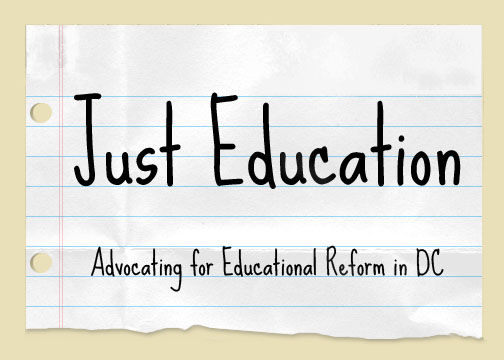I'm taking a class on Washington, DC history this semester, and a couple weeks ago we had a local talk radio host (Mark Plotkin for WTOP FM) come and talk to us about local DC politics and other related issues. Mr. Plotkin has lived in this city since he was a student at GW in the 1960s, so he had plenty of perspective to offer. When the conversation turned to DC voting rights, and the injustice of living in a city that is federally taxed but not federally represented, the class talked about how people here and around the country seem to be complacent toward, if not completely ignorant of, the voting rights issue. Mr. Plotkin gave his opinion that it would take something dramatic, something eye-opening, a we're-not-going-to-take-this-anymore type of moment, to raise public awareness and actually change the predicament here in DC.
Although the ramifications of DC Mayor Vince Gray's arrest on Monday remain to be seen, it at least may have provided the optic that people like Mr. Plotkin have been waiting for.
Mayor Gray was arrested along with several DC city council members while protesting controversial provisions in the budget agreement negotiated last week between President Obama and congressional Republicans. As part of the agreement, Congress will block DC from using its own money to pay for abortions, and will also terminate a needle-exchange program meant to combat the spread of HIV/AIDS, which afflicts 3 percent of DC residents - the largest percentage in the country. More relevant to the DC Reads program, and to the cause of equal and just education throughout our city, was a separate provision mandating that DC reinstate its private school voucher system.
The return of the school voucher issue is a big deal. Vouchers are taxpayer subsidies given to low-income parents so that they may send their children to a private school of their choice. But could the money that is being set aside for vouchers not instead be spent on shoring up the current budget gap in DC Public Schools, which is forcing schools to scale back essential programs and extra-curricular activities that help students succeed? Republicans also plan on cutting the federal appropriation for DC that helps the city to fund its education system and pay for other essential services. So Congress is setting aside money for DC students to flee public schools, but at the same time continuing to undermine those schools by forcing the city to cut its budget. This makes no sense.
Beyond vouchers, however, the federal power grab currently taking place in Washington gets to several deeper questions. The idea that Congress could impose its will on a city that is meant to represent freedom and democracy would be laughable if it weren't so true and steeped in history. DC was not even permitted to govern itself until 1973, when District residents first voted for a mayor and city council. Even since then, Congress forcibly took control over the city's budget during the 1990s, and continues to dictate what the city can and cannot do with its own resources. Meanwhile, the people of this city have no political recourse because they have no legitimate congressional representation. Part of the reason this hasn't changed is because many people don't even know it's a problem - two-thirds of college educated adults do not know that Washington, DC has no congressional voting rights. Many students on the Georgetown campus don't realize that they live in a city that literally does not have the right to solve its own problems; a city that can have essential programs and services cut or altered at any moment by politicians who have an ideological agenda but could care less about the people that actually live here.
Education has been referred to by Arne Duncan, Al Sharpton, and others within the reform movement as "the civil rights issue of our time." I know for a fact that this is a motivating factor which drives a lot of the work that many of us do within DC Reads. So how can we begin to talk about the injustices surrounding education in America while ignoring the fact that the city where we live and work lacks the basic right to have its voice heard? And what kind of a world are we tutoring and educating our students to live in if we can't also face up to this reality?
If we're to be advocates for students in this city, we also need to be advocates for this city. And recognize that whether it's education reform or any other issue that needs to be addressed, DC will not reach its true potential as long as someone else is pulling its strings.


No comments:
Post a Comment